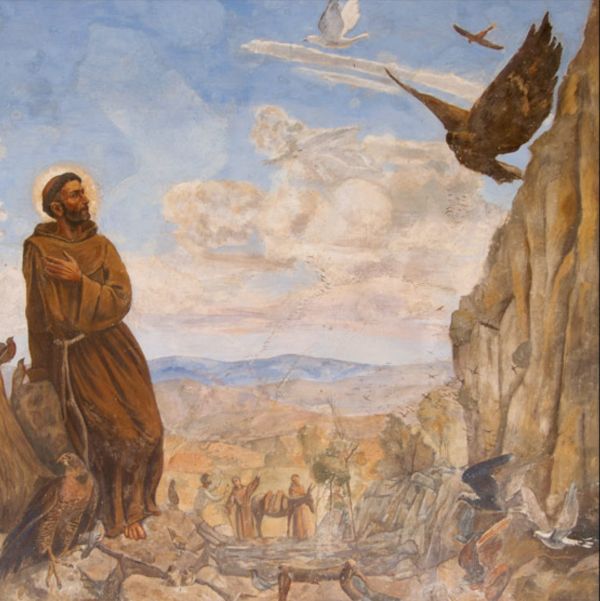Today is the Feast of the one who gave meaning and roots to Franciscanism. The Gospel chosen is that of Jesus turning to the Father to thank Him for revealing the Mysteries of the Kingdom to the little ones. And he, Francis, is the Little One, the meek par excellence.
In the Sources, the littleness of this Giant of the Gospel is summed up thus:
"Another time he confessed to his companions:
"Among other graces, the Most High has bestowed on me this: I would obey the novice who entered the Order today, if he were my guardian, as if he were the first and oldest of the brothers.
Indeed, the subject must not consider in the prelate the man, but He for whose sake he submits to a man".
He also said:
"There would not be a prelate in the whole world, feared by his subjects and brothers as much as the Lord would have me feared by my brothers, should I wish it.
But the Most High has given me this grace: to know how to adapt myself to everyone, as if I were the smallest friar in the Order".
We have seen with our own eyes repeatedly, we who have lived with Francis, the truth of this statement of his.
On several occasions, when certain brothers did not assist him in his needs, or some word was addressed to him that produced agitation, the Saint immediately withdrew to pray.
And when he returned, he did not want to remember the insult, saying: 'That friar neglected me!', or: 'He said this word to me'.
And the closer he came to death, the more concerned he was to live and die in all the perfection of humility and poverty' (FF 1663).
He was humble and meek not only with superiors but also with peers and inferiors, content to be admonished and corrected by them.
One day, crossing a farmer's field on a donkey, because he was weak, the latter pointed out to him that he was in life really what they said about him:
'Look,' said the farmer, 'be as good as everyone says you are, because many people trust you. That is why I exhort you never to behave differently from what is hoped'.
At these words, Francis got down from the donkey and, prostrating himself before the peasant, he kissed his feet several times, humbly thanking him that he had deigned to admonish him [...].
He thought himself vile before God and men' (FF 726).
And in the Salutation to the Virtues, written by him, we read:
"Holy humility/ confounds pride/ and all men that are in the world/ and likewise all things that are in the world" (FF 258).
"I give praise to you, Father, Lord of heaven and earth, for you have hidden these things from the wise and the learned and revealed them to the little ones" (Mt 11:25).
S. Francis of Assisi, saint patron of Italy (Mt 11:25-30)












